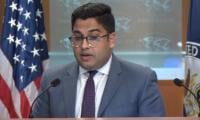PanamaLeaks case
Justice Ijaz Afzal Khan says no conclusive judgment can be given on the basis of available material; Justice Khosa says father says something while children contradict it
ISLAMABAD: The Supreme Court on Thursday summoned Chairmen National Accountability Bureau and the Federal Board of Revenue in the PanamaLeaks case and adjourned the hearing until February 21.
The court directed Prosecutor General NAB Waqas Qadeer Dar and Additional Attorney General Waqar Rana to inform the chairmen NAB and FBR to appear before it in-person on February 21.The court directed Waqas Qadeer Dar that the chairman NAB should appear well-prepared about the two cases decided in 1999 and as well as the Hudaibya Papers Mills case.
A five-member larger bench of the apex court, headed by Justice Asif Saeed Khan Khosa, adjourned the hearing until February 21 after counsel for Hussain Nawaz and Hassan Nawaz, sons of the prime minister, concluded his arguments.
The counsel contended that the apex court could not constitute a commission, as there was no space for it in the law. He said the trial could not be held in public interest cases and hence this job should be assigned to the investigating institutions concerned.
To a query as to why the commission could not be constituted, the counsel contended that if the court itself constituted a commission, then the institutions concerned while inquiring into the matter could be affected by its opinion.
In this respect, he referred to the famous Asghar Khan case saying that there was a question of constitutional violation when the electoral process was interfered.Justice Asif khan Khosa, however, said in that case the Supreme Court had given a declaration while investigation was referred to the investigating agencies concerned.
Salman Akram Raja, however, said the declaration was given on the basis of admitted facts adding that the statement of the petitioner was not controverted by the respondents and they admitted that they had committed a violation.
He said the court could give its findings on the basis of admissible facts adding that any decision given on just assumptions or incomplete documents could affect the right of appeal of any party.
Justice Ijazul Ahsen observed that there was admission on the part of the other side that the Sharif family owned the flats but there was no source of funding mentioned by the family with the allegation that these flats were purchased illegally.
The judge further said even documents pertaining to the source of funding were not produced before the court.
Justice Asif Saeed Khan Khosa said Mian Sharif was no more, the children did not have the resources while the lady wife was a housewife and only one person left had the sources.“These are mere assumptions,” Salman Akram Raja replied.
Justice Khosa, however, said if this was the matter, then we start looking into the statements of the prime minister, interviews of children and the lady wife.“The father says something, while the children contradict it,” Justice Asif Khosa said, adding that most of the cabinet members also contradicted it.
Salman Akram Raja said the petitioners had not proved any allegation against the prime minister, but just alleged that some wrong had been done.Justice Ijaz Afzal Khan said no conclusive judgment could be given on the basis of available material.
Salman Raja contended that in mega corruption cases when the investigating agencies failed to do their jobs, the court then started monitoring the investigation.He contended that there was a general assumption that the investigating agencies were not acting against the PM and his family.
Justice Khosa, however, observed as to what they could do when the authorities concerned had given in writing that they could not proceed as per the law.No agency can say that they will not act or proceed against anyone, Salman said.
Justice Ijaz Afzal Khan, however, said the petitioners had submitted that earlier they had approached the NAB to act but it did not. He further said there were so many examples where the investigating agencies did not abide by the court’s direction.
“That’s why we are looking into the matter from every angle and aspect,” Justice Ijaz Afzal added.Justice Asif Saeed Khan Khosa said he fears that at the end of proceedings, the counsel will say that the instant proceeding was not fair.
No certainly not, the instant proceeding was historical in nature and seems to be a public trial.He said the media people were talking about it in talkshows despite the fact the matter was sub judice while some of their colleagues (lawyers) were also giving judgments.
Justice Khosa said he had studied lots of international tribunals, some of them related to international arbitration. He said in some cases, he found that sometimes in civil cases the element of criminality propped up for which the burden of proof was decided with probability more likely than that.
Earlier, Salman Akram Raja submitted service records of Minerva, the holding company for Nescoll and Nielson Enterprises, the offshore companies which own the London flats.Giving details, he added, a representative of Hussain Nawaz’s Minerva firm Faisal Tiwana had made an agreement with Arrina company.
The counsel submitted transactions conducted by the Minerva Company, which included receipts of Barclays Bank.He submitted that Maryam Nawaz had remained the trustee shareholder after she kept bearer certificates with her from February till July 2006. Registered shares were issued for the firm in July 2016.
After the bearer certificates were suspended, he said Maryam Nawaz’s trustee status had become invalid.Justice Asif Saeed Khosa said that the hearing will be held thrice a week as the health of one of the members of the bench did not permit him to sit five days a week.
Meanwhile, the court adjourned the hearing until February 21.
Saad was of the view that the battle of politics should be fought solely through political means
KP govt decided to develop gemstone business as a formal export sector and cluster at the Namak Mandi would be...
Khyber Pakhtunkhwa Minister for Higher Education, Archives, and Libraries, Meena Khan Afridi. — APP FilePESHAWAR:...
Vehicles and horse carts passing through flood water at Bara Bazar area on Khuwani bridge after heavy rain in Peshawar...
Amid the failure to revive the cash-bleeding PIA, government is left with no other option but to sell it to any...
Picture showing the Silver Jubilee Gate of the University of Karachi. — APP File KARACHI: The University of Karachi...







